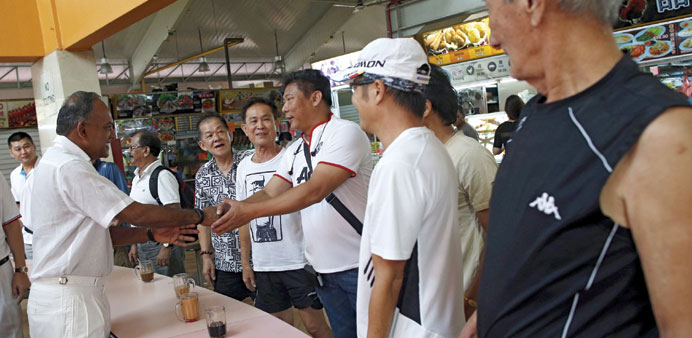By Kirsten Han/DPA/Singapore
All 89 seats in Singapore’s Parliament will be contested in the September 11 general election, for the first time in the country’s history as an independent state.
The People’s Action Party (PAP) has been the dominant force in the island nation for over 50 years. It has won every single election since independence in 1965. Between 1968 and 1984, the opposition held no seats in Parliament.
But is now facing growing resentment as citizens feel overwhelmed by a growing population and the high cost of living.
The last general election in May 2011 saw the PAP deliver its worst performance at the polls, with a share of the vote of about 60%, since it came to power in 1959.
Party leader and incumbent Prime Minister Lee Hsien Loong is keen on reversing this trend.
Observers believe calling the election in the year in which Singapore both celebrated its Golden Jubilee and mourned the death of first prime minister Lee Kuan Yew is part of the strategy.
“There is the belief that the ground is as sweet as it can be for the ruling PAP,” Eugene Tan, an associate professor of law at the Singapore Management University, told DPA.
Yet the party cannot count too much on the sympathy vote.
“There is no assurance that the feel-good mood will be transferred to the ruling party,” Tan said.
“The positive sentiments are directed at the state and while the PAP is intimately connected with the success and growth of Singapore, Singaporeans do increasingly differentiate between the party and the state.”
As always, opposition parties will find themselves facing an uphill battle.
Despite wresting part of the vote from the PAP, only one opposition party - the Workers’ Party - was elected to Parliament. A by-election in 2013 gave it one more seat, but the seven elected opposition members of Parliament continue to be dominated by 80 PAP members.
The PAP has argued that it continues to be the best party to keep Singapore “special” and take it into the future.
“If you vote for the opposition and they win many constituencies to form the government, then Singapore is sunk,” said Lee Hsien Loong at the launch of the party’s manifesto.
But Singaporeans continue to air grievances over issues such as population and transport.
A Population White Paper released in 2012 which predicted that Singapore’s population would grow by another 1.5mn people by 2030 drew widespread opposition, and a recent massive breakdown in the city’s train system has put the public transport system under heavy scrutiny.
While opposition candidates repeatedly highlight these issues, the PAP prefers to remind Singaporeans of the journey that the country and the party have been on together since 1965.
“The government is working hard to get the electorate to think in terms of the 50 years since independence and the opposition ... will be trying to put the focus on the last 10 years, when everything started going wrong,” said Michael Barr, associate professor of international relations at Flinders University.

Singapore’s Foreign Minister K Shanmugam of the ruling People’s Action Party speaking with residents during a visit to a hawker centre in Singapore. T
